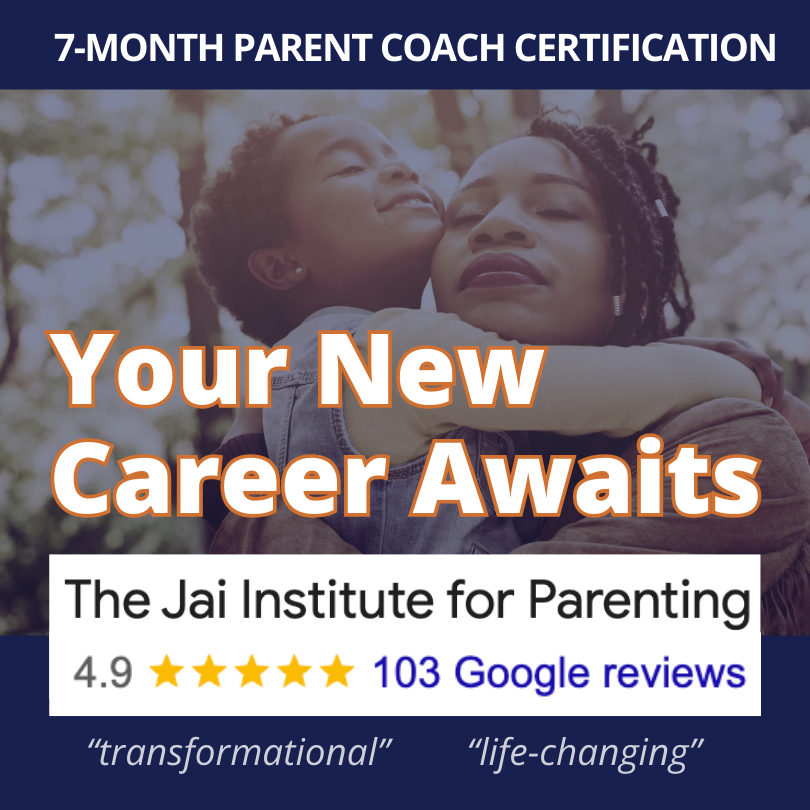Stop Telling Kids 'Good Job': The Problem with Praise

The Praise Paradox
As parents, we want to lift our children up, celebrate their achievements, and nurture their sense of self. Praise often feels like the perfect tool for this. Who doesn’t love hearing “Good job!” or “I’m so proud of you!”?
But what if the way we use praise could be unintentionally teaching our children to rely on external validation rather than developing a deep and lasting sense of self-worth? What if praise, when overused or misapplied, actually limits their confidence instead of fostering it?
Let’s take a closer look at the praise paradox and explore why praise can sometimes do more harm than good and what we can do instead to nurture true confidence and intrinsic motivation in our children.
What Are the Disadvantages of Praise?
Praise, in and of itself, isn’t inherently bad. The problem arises when praise is conditional, meaning it’s given only when a child performs in a way that meets our approval. This kind of praise teaches children to seek validation outside of themselves rather than learning to trust their own instincts, desires, and capabilities. It also reinforces results rather than effort.
When children hear, “You’re so smart!” every time they solve a problem correctly, they start to believe that being smart is what makes them valuable. Over time, this can lead to a fixed mindset, where they fear challenges that might expose them as “not smart” rather than embracing the learning process itself.
Alternatively, if a child is constantly praised for being well-behaved, “You’re such a good girl for sitting quietly,” they will learn that their worth is tied to obedience rather than their own inner compass. This can create a deep-seated habit of seeking approval instead of developing the confidence to think independently.
This training in seeking outside validation leads children, teenagers, and eventually adults to prioritize the opinions of those around them. Suddenly, the input from peers, bosses, and partners is held in higher esteem than their own opinions, beliefs, and desires. Children who are encouraged to consider and value their own opinions become adults who are the source of their own confidence, validation, and truth.
What Are the Side Effects of Praise?
When praise is used frequently, or without consideration, it can create unintended consequences. Some of these are:
1. Dependence on External Validation
If children only feel good about themselves when they receive praise, they may struggle to develop self-esteem from within. Instead of doing things because they find them meaningful or enjoyable, they may become preoccupied with pleasing others.
2. Fear of Failure
Praise that focuses on results (“You’re amazing at soccer!”) rather than effort (“You worked really hard in that game!”) can
create anxiety around making mistakes. A child may avoid trying new things for fear of losing the praise they’ve come to depend on.
3. Lack of Intrinsic Motivation
If children always hear “Great job!” after completing a task, they might begin to work for the reward of praise rather than the joy of the activity itself. This can
diminish their natural curiosity and willingness to engage in challenges for personal fulfillment.
4. Overpraising and False Praise
Children are incredibly perceptive. When praise is excessive or insincere, they can sense it. Saying, “That was the best drawing ever!” when they know they barely put in effort, can lead them to mistrust feedback altogether. Over time, this can contribute to a lack of confidence rather than boosting it.
What Makes Praise Ineffective?
Not all praise is bad, but certain types of praise can undermine the very confidence we hope to instill. Ineffective types of praise include:
- Generalized Praise – Saying “Good job!” without specifying what was done well offers no real information or encouragement for growth.
- Comparative Praise – Telling a child they are “the best” at something can create pressure to maintain that status, leading to stress and competition rather than personal fulfillment.
- Outcome-Focused Praise – Praising a child only for successes (“You got an A—so smart!”) instead of their process and effort can make them hesitant to take risks in the future.
Can Too Much Praise Be Bad?
Yes. When praise is given too frequently or used as a default response, children may start to feel manipulated rather than truly seen and valued. Praise that is given too freely can lose its meaning, making children either dismiss it or crave it even more.
Constant praise can shift a child’s focus from self-improvement to pleasing authority figures, reinforcing obedience rather than self-guided decision-making. Instead of
growing into self-assured, confident individuals, they may struggle with self-doubt when praise is absent.
What to Do Instead: Nurturing Intrinsic Motivation and Self-Worth
So, if excessive or conditional praise is problematic, what should we do instead? The answer lies in constructive feedback, encouragement, and fostering a growth mindset.
1. Acknowledge Effort, Not Just Outcomes
- Instead of: “You’re so smart!”
- Try: “I love how you kept trying different strategies to solve that puzzle!”
2. Encourage Self-Reflection
- Instead of: “Great job on your painting!”
- Try: “How do you feel about your painting? What do you like most about it?”
3. Support Internal Motivation
- Instead of: “I’m proud of you for helping your friend.”
- Try: “That was kind of you to help your friend. How did that feel?”
4. Use Descriptive Feedback
- Instead of: “Wow, you’re such a fast runner!”
- Try: “You ran so fast! You looked really focused and determined.”
5. Model Self-Worth and Confidence
- Children learn the most from watching us. When we speak kindly about ourselves, embrace challenges, and celebrate effort, they internalize and apply those messages to themselves.
Building a Foundation for Lifelong Confidence
The transition from habitual praise to thoughtful encouragement takes time and practice. Praise isn’t inherently harmful, but when used as a tool for control or validation, it can create unintended consequences.
Our goal as parents isn’t to withhold encouragement; it’s to shift from empty praise to meaningful, authentic acknowledgment that fosters a child’s intrinsic motivation, confidence, and self-worth.
The greatest we can give our children is the freedom to define their worth from within. By focusing on encouragement over evaluation, process over perfection, and growth over approval, we help our children build an unshakable foundation of self-trust and resilience. And that is far more powerful than any “Good job!” could ever be.
If you are curious to know more about transforming your parenting, claim your free copy of
How to Become An Empowered Parenting Coach. You can learn how to help your family and impact other families around you with your very own Parent Coaching Business.
Meet Your Author, Katie Owen
Jai Business Coach & Marketing Mentor
As a former practicing therapist turned copywriter and marketing strategist, Katie is passionate about the intersection of marketing and mindset. Katie embodies the practices of taking the simple actions, consistently over time, that create epic results.
A master storyteller, Katie works with our coaches to refine their message, increase their visibility and get clients!
READ MORE:
Curious for more?














